@import url(https://www.ratisbonne.org.il/bk/wp-content/plugins/siteorigin-panels/css/front-flex.min.css); #pgc-3967-0-0 , #pgc-3967-0-2 { width:10%;width:calc(10% – ( 0.9 * 30px ) ) } #pgc-3967-0-1 { width:80%;width:calc(80% – ( 0.2 * 30px ) ) } #pl-3967 #panel-3967-0-1-0 { } #pl-3967 .so-panel { margin-bottom:30px } #pl-3967 .so-panel:last-child { margin-bottom:0px } #pg-3967-0.panel-no-style, #pg-3967-0.panel-has-style > .panel-row-style { -webkit-align-items:flex-start;align-items:flex-start } @media (max-width:780px){ #pg-3967-0.panel-no-style, #pg-3967-0.panel-has-style > .panel-row-style { -webkit-flex-direction:column;-ms-flex-direction:column;flex-direction:column } #pg-3967-0 .panel-grid-cell { margin-right:0 } #pg-3967-0 .panel-grid-cell { width:100% } #pgc-3967-0-0 , #pgc-3967-0-1 { margin-bottom:30px } #pl-3967 .panel-grid-cell { padding:0 } #pl-3967 .panel-grid .panel-grid-cell-empty { display:none } #pl-3967 .panel-grid .panel-grid-cell-mobile-last { margin-bottom:0px } }
news
Parashat Va’etchanan
@import url(https://www.ratisbonne.org.il/bk/wp-content/plugins/siteorigin-panels/css/front-flex.min.css); #pgc-3958-0-0 , #pgc-3958-0-2 { width:10%;width:calc(10% – ( 0.9 * 30px ) ) } #pgc-3958-0-1 { width:80%;width:calc(80% – ( 0.2 * 30px ) ) } #pl-3958 #panel-3958-0-1-0 { } #pl-3958 .so-panel { margin-bottom:30px } #pl-3958 .so-panel:last-child { margin-bottom:0px } #pg-3958-0.panel-no-style, #pg-3958-0.panel-has-style > .panel-row-style { -webkit-align-items:flex-start;align-items:flex-start } @media (max-width:780px){ #pg-3958-0.panel-no-style, #pg-3958-0.panel-has-style > .panel-row-style { -webkit-flex-direction:column;-ms-flex-direction:column;flex-direction:column } #pg-3958-0 .panel-grid-cell { margin-right:0 } #pg-3958-0 .panel-grid-cell { width:100% } #pgc-3958-0-0 , #pgc-3958-0-1 { margin-bottom:30px } #pl-3958 .panel-grid-cell { padding:0 } #pl-3958 .panel-grid .panel-grid-cell-empty { display:none } #pl-3958 .panel-grid .panel-grid-cell-mobile-last { margin-bottom:0px } }
The Sixteenth Sunday in Ordinary Time
@import url(https://www.ratisbonne.org.il/bk/wp-content/plugins/siteorigin-panels/css/front-flex.min.css); #pgc-3948-0-0 , #pgc-3948-0-2 { width:10%;width:calc(10% – ( 0.9 * 30px ) ) } #pgc-3948-0-1 { width:80%;width:calc(80% – ( 0.2 * 30px ) ) } #pl-3948 #panel-3948-0-1-0 { } #pl-3948 .so-panel { margin-bottom:30px } #pl-3948 .so-panel:last-child { margin-bottom:0px } #pg-3948-0.panel-no-style, #pg-3948-0.panel-has-style > .panel-row-style { -webkit-align-items:flex-start;align-items:flex-start } @media (max-width:780px){ #pg-3948-0.panel-no-style, #pg-3948-0.panel-has-style > .panel-row-style { -webkit-flex-direction:column;-ms-flex-direction:column;flex-direction:column } #pg-3948-0 .panel-grid-cell { margin-right:0 } #pg-3948-0 .panel-grid-cell { width:100% } #pgc-3948-0-0 , #pgc-3948-0-1 { margin-bottom:30px } #pl-3948 .panel-grid-cell { padding:0 } #pl-3948 .panel-grid .panel-grid-cell-empty { display:none } #pl-3948 .panel-grid .panel-grid-cell-mobile-last { margin-bottom:0px } }
Parashat Devarim
@import url(https://www.ratisbonne.org.il/bk/wp-content/plugins/siteorigin-panels/css/front-flex.min.css); #pgc-3939-0-0 , #pgc-3939-0-2 { width:10%;width:calc(10% – ( 0.9 * 30px ) ) } #pgc-3939-0-1 { width:80%;width:calc(80% – ( 0.2 * 30px ) ) } #pl-3939 #panel-3939-0-1-0 { } #pl-3939 .so-panel { margin-bottom:30px } #pl-3939 .so-panel:last-child { margin-bottom:0px } #pg-3939-0.panel-no-style, #pg-3939-0.panel-has-style > .panel-row-style { -webkit-align-items:flex-start;align-items:flex-start } @media (max-width:780px){ #pg-3939-0.panel-no-style, #pg-3939-0.panel-has-style > .panel-row-style { -webkit-flex-direction:column;-ms-flex-direction:column;flex-direction:column } #pg-3939-0 .panel-grid-cell { margin-right:0 } #pg-3939-0 .panel-grid-cell { width:100% } #pgc-3939-0-0 , #pgc-3939-0-1 { margin-bottom:30px } #pl-3939 .panel-grid-cell { padding:0 } #pl-3939 .panel-grid .panel-grid-cell-empty { display:none } #pl-3939 .panel-grid .panel-grid-cell-mobile-last { margin-bottom:0px } }
The Fifteenth Sunday in Ordinary Time
@import url(https://www.ratisbonne.org.il/bk/wp-content/plugins/siteorigin-panels/css/front-flex.min.css); #pgc-3926-0-0 , #pgc-3926-0-2 { width:10%;width:calc(10% – ( 0.9 * 30px ) ) } #pgc-3926-0-1 { width:80%;width:calc(80% – ( 0.2 * 30px ) ) } #pl-3926 #panel-3926-0-1-0 { } #pl-3926 .so-panel { margin-bottom:30px } #pl-3926 .so-panel:last-child { margin-bottom:0px } #pg-3926-0.panel-no-style, #pg-3926-0.panel-has-style > .panel-row-style { -webkit-align-items:flex-start;align-items:flex-start } @media (max-width:780px){ #pg-3926-0.panel-no-style, #pg-3926-0.panel-has-style > .panel-row-style { -webkit-flex-direction:column;-ms-flex-direction:column;flex-direction:column } #pg-3926-0 .panel-grid-cell { margin-right:0 } #pg-3926-0 .panel-grid-cell { width:100% } #pgc-3926-0-0 , #pgc-3926-0-1 { margin-bottom:30px } #pl-3926 .panel-grid-cell { padding:0 } #pl-3926 .panel-grid .panel-grid-cell-empty { display:none } #pl-3926 .panel-grid .panel-grid-cell-mobile-last { margin-bottom:0px } }
Parashat Mattot/Massei
@import url(https://www.ratisbonne.org.il/bk/wp-content/plugins/siteorigin-panels/css/front-flex.min.css); #pgc-3917-0-0 , #pgc-3917-0-2 { width:10%;width:calc(10% – ( 0.9 * 30px ) ) } #pgc-3917-0-1 { width:80%;width:calc(80% – ( 0.2 * 30px ) ) } #pl-3917 #panel-3917-0-1-0 { } #pl-3917 .so-panel { margin-bottom:30px } #pl-3917 .so-panel:last-child { margin-bottom:0px } #pg-3917-0.panel-no-style, #pg-3917-0.panel-has-style > .panel-row-style { -webkit-align-items:flex-start;align-items:flex-start } @media (max-width:780px){ #pg-3917-0.panel-no-style, #pg-3917-0.panel-has-style > .panel-row-style { -webkit-flex-direction:column;-ms-flex-direction:column;flex-direction:column } #pg-3917-0 .panel-grid-cell { margin-right:0 } #pg-3917-0 .panel-grid-cell { width:100% } #pgc-3917-0-0 , #pgc-3917-0-1 { margin-bottom:30px } #pl-3917 .panel-grid-cell { padding:0 } #pl-3917 .panel-grid .panel-grid-cell-empty { display:none } #pl-3917 .panel-grid .panel-grid-cell-mobile-last { margin-bottom:0px } }
The Fourteenth Sunday in Ordinary Time
@import url(https://www.ratisbonne.org.il/bk/wp-content/plugins/siteorigin-panels/css/front-flex.min.css); #pgc-3892-0-0 , #pgc-3892-0-2 { width:10%;width:calc(10% – ( 0.9 * 30px ) ) } #pgc-3892-0-1 { width:80%;width:calc(80% – ( 0.2 * 30px ) ) } #pl-3892 #panel-3892-0-1-0 { margin:0px 0px 50px 0px } #pl-3892 .so-panel { margin-bottom:30px } #pl-3892 .so-panel:last-child { margin-bottom:0px } #pg-3892-0.panel-no-style, #pg-3892-0.panel-has-style > .panel-row-style { -webkit-align-items:flex-start;align-items:flex-start } @media (max-width:780px){ #pg-3892-0.panel-no-style, #pg-3892-0.panel-has-style > .panel-row-style { -webkit-flex-direction:column;-ms-flex-direction:column;flex-direction:column } #pg-3892-0 .panel-grid-cell { margin-right:0 } #pg-3892-0 .panel-grid-cell { width:100% } #pgc-3892-0-0 , #pgc-3892-0-1 { margin-bottom:30px } #pl-3892 .panel-grid-cell { padding:0 } #pl-3892 .panel-grid .panel-grid-cell-empty { display:none } #pl-3892 .panel-grid .panel-grid-cell-mobile-last { margin-bottom:0px } }
Parashat Pinchas
@import url(https://www.ratisbonne.org.il/bk/wp-content/plugins/siteorigin-panels/css/front-flex.min.css); #pgc-3879-0-0 , #pgc-3879-0-2 { width:10%;width:calc(10% – ( 0.9 * 30px ) ) } #pgc-3879-0-1 { width:80%;width:calc(80% – ( 0.2 * 30px ) ) } #pl-3879 #panel-3879-0-1-0 { } #pl-3879 .so-panel { margin-bottom:30px } #pl-3879 .so-panel:last-child { margin-bottom:0px } #pg-3879-0.panel-no-style, #pg-3879-0.panel-has-style > .panel-row-style { -webkit-align-items:flex-start;align-items:flex-start } @media (max-width:780px){ #pg-3879-0.panel-no-style, #pg-3879-0.panel-has-style > .panel-row-style { -webkit-flex-direction:column;-ms-flex-direction:column;flex-direction:column } #pg-3879-0 .panel-grid-cell { margin-right:0 } #pg-3879-0 .panel-grid-cell { width:100% } #pgc-3879-0-0 , #pgc-3879-0-1 { margin-bottom:30px } #pl-3879 .panel-grid-cell { padding:0 } #pl-3879 .panel-grid .panel-grid-cell-empty { display:none } #pl-3879 .panel-grid .panel-grid-cell-mobile-last { margin-bottom:0px } }
The Thirteenth Sunday in Ordinary Time
@import url(https://www.ratisbonne.org.il/bk/wp-content/plugins/siteorigin-panels/css/front-flex.min.css); #pgc-3694-0-0 , #pgc-3694-0-2 { width:10%;width:calc(10% – ( 0.9 * 30px ) ) } #pgc-3694-0-1 { width:80%;width:calc(80% – ( 0.2 * 30px ) ) } #pl-3694 #panel-3694-0-1-0 { } #pl-3694 .so-panel { margin-bottom:30px } #pl-3694 .so-panel:last-child { margin-bottom:0px } #pg-3694-0.panel-no-style, #pg-3694-0.panel-has-style > .panel-row-style { -webkit-align-items:flex-start;align-items:flex-start } @media (max-width:780px){ #pg-3694-0.panel-no-style, #pg-3694-0.panel-has-style > .panel-row-style { -webkit-flex-direction:column;-ms-flex-direction:column;flex-direction:column } #pg-3694-0 .panel-grid-cell { margin-right:0 } #pg-3694-0 .panel-grid-cell { width:100% } #pgc-3694-0-0 , #pgc-3694-0-1 { margin-bottom:30px } #pl-3694 .panel-grid-cell { padding:0 } #pl-3694 .panel-grid .panel-grid-cell-empty { display:none } #pl-3694 .panel-grid .panel-grid-cell-mobile-last { margin-bottom:0px } }
Parashat Balak
@import url(https://www.ratisbonne.org.il/bk/wp-content/plugins/siteorigin-panels/css/front-flex.min.css); #pgc-3685-0-0 , #pgc-3685-0-2 { width:10%;width:calc(10% – ( 0.9 * 30px ) ) } #pgc-3685-0-1 { width:80%;width:calc(80% – ( 0.2 * 30px ) ) } #pl-3685 #panel-3685-0-1-0 { } #pl-3685 .so-panel { margin-bottom:30px } #pl-3685 .so-panel:last-child { margin-bottom:0px } #pg-3685-0.panel-no-style, #pg-3685-0.panel-has-style > .panel-row-style { -webkit-align-items:flex-start;align-items:flex-start } @media (max-width:780px){ #pg-3685-0.panel-no-style, #pg-3685-0.panel-has-style > .panel-row-style { -webkit-flex-direction:column;-ms-flex-direction:column;flex-direction:column } #pg-3685-0 .panel-grid-cell { margin-right:0 } #pg-3685-0 .panel-grid-cell { width:100% } #pgc-3685-0-0 , #pgc-3685-0-1 { margin-bottom:30px } #pl-3685 .panel-grid-cell { padding:0 } #pl-3685 .panel-grid .panel-grid-cell-empty { display:none } #pl-3685 .panel-grid .panel-grid-cell-mobile-last { margin-bottom:0px } }

 We hear in the First Reading, Elisha insisted “Give it to the people to eat, for thus says the Lord, They shall eat and there shall be some left over” (2Kg 4:43). This beautiful little tradition prefigures the miraculous feeding of the Gospel. The bread is multiplied to feed the poor. Earlier in (2Kg 4:1-7) tells of the widow who, like the widow of Zarephath (1Kg 17:7-16) has only a small jar of oil, but its amount multiplies so that she is able to fill all the empty vessels she can find. It also echoes something in the Gospel of Mathew, “you have received freely, give it freely”(Mt10:8-10). Elisha, upon seeing the supplies, did not hesitate but commanded the man to give the food so that others may eat.
We hear in the First Reading, Elisha insisted “Give it to the people to eat, for thus says the Lord, They shall eat and there shall be some left over” (2Kg 4:43). This beautiful little tradition prefigures the miraculous feeding of the Gospel. The bread is multiplied to feed the poor. Earlier in (2Kg 4:1-7) tells of the widow who, like the widow of Zarephath (1Kg 17:7-16) has only a small jar of oil, but its amount multiplies so that she is able to fill all the empty vessels she can find. It also echoes something in the Gospel of Mathew, “you have received freely, give it freely”(Mt10:8-10). Elisha, upon seeing the supplies, did not hesitate but commanded the man to give the food so that others may eat.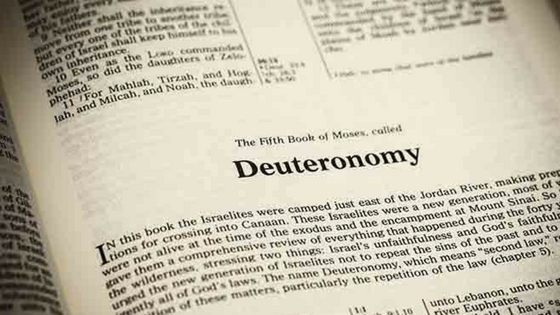
 In this week’s parashah ‘words’ are again in focus. The quality of how words are heard is significant, even a matter of life and death. (6:34) God uses words to dynamically engage in people’s lives and, in turn, the people’s own narrative is shaped by their response, as can be seen in the covenantal theme of all that God has done for the people and what they must do in response. (6:20-25)
In this week’s parashah ‘words’ are again in focus. The quality of how words are heard is significant, even a matter of life and death. (6:34) God uses words to dynamically engage in people’s lives and, in turn, the people’s own narrative is shaped by their response, as can be seen in the covenantal theme of all that God has done for the people and what they must do in response. (6:20-25)
 The apostles returned from their first public ministry. Gathered and reunited with Jesus and each other, they shared what they had done and taught. Jesus invited them to “Come away to a deserted place and rest for a while.” Their rhythm of life had been filled with intense activity, attending to the needs of the people. Jesus then redirected their attention back to an essential element of being able to participate well in his mission, simply being, seeking time and space for solitude and rest.
The apostles returned from their first public ministry. Gathered and reunited with Jesus and each other, they shared what they had done and taught. Jesus invited them to “Come away to a deserted place and rest for a while.” Their rhythm of life had been filled with intense activity, attending to the needs of the people. Jesus then redirected their attention back to an essential element of being able to participate well in his mission, simply being, seeking time and space for solitude and rest.
 Devarim is the Hebrew title for the whole book of Deuteronomy and for this particular parashah and it means, among other things, ‘words’. Although written after Moses was alive, the book contains various speeches attributed to him, spoken in the final stages of his life as he looks back over the years since leaving Egypt. Devarim recounts, with some variations, much of what has happened in Exodus, Leviticus and Numbers, and revisits the commandments of God and the importance of obeying them.
Devarim is the Hebrew title for the whole book of Deuteronomy and for this particular parashah and it means, among other things, ‘words’. Although written after Moses was alive, the book contains various speeches attributed to him, spoken in the final stages of his life as he looks back over the years since leaving Egypt. Devarim recounts, with some variations, much of what has happened in Exodus, Leviticus and Numbers, and revisits the commandments of God and the importance of obeying them.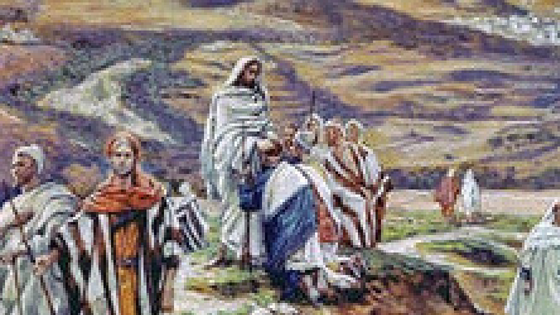
 In this Sunday’s gospel, taken from Mark, we read that Jesus calls the twelve, sends them out two by two and gives them authority over unclean spirits. He orders them to take nothing for the journey except a staff. He instructs them to remain in the house that receives them until they depart.
In this Sunday’s gospel, taken from Mark, we read that Jesus calls the twelve, sends them out two by two and gives them authority over unclean spirits. He orders them to take nothing for the journey except a staff. He instructs them to remain in the house that receives them until they depart.
 This week’ reading represents a perfect conclusion of the Fourth book of Torah having its focus in the main theme of the whole Book of Numbers: journey in the wilderness. This great experience of being strangers and pilgrims filled with desire to inherit the Promised Land determines the origins of Israel.
This week’ reading represents a perfect conclusion of the Fourth book of Torah having its focus in the main theme of the whole Book of Numbers: journey in the wilderness. This great experience of being strangers and pilgrims filled with desire to inherit the Promised Land determines the origins of Israel.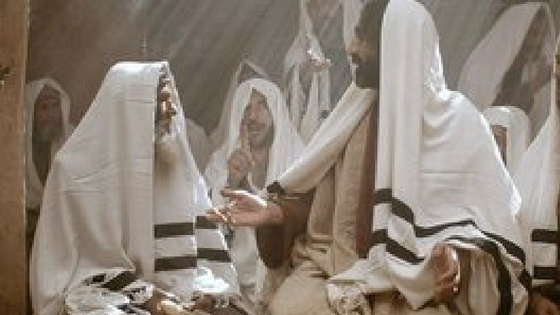
 The account on the rejection of Jesus is quite extraordinary if compared to how the Lukan account depicted him, that, “Jesus increased in wisdom and in years and in divine and human favor.” [Lk 2:52] In the Markan account, Jesus did not have the esteem of his own people. In fact, he was rejected “and they took offense at him.” [Mk 6:3] They could not see beyond his family line and him being a carpenter. He was too familiar. This is only in reference to the people of his hometown. But, there is also a difficult verse in Mark 3:21. Exploring different translations, we find that there is an obvious translation problem. Who were saying the remark that Jesus was out of his mind, his family and relatives or the people? Mark has indeed effectively conveyed in his storytelling the rejection of Jesus by his contemporaries which creates the creative tension of provoking the reader/listener of the Gospel to make a stand and clarify his/her own beliefs about this person called Jesus Christ.
The account on the rejection of Jesus is quite extraordinary if compared to how the Lukan account depicted him, that, “Jesus increased in wisdom and in years and in divine and human favor.” [Lk 2:52] In the Markan account, Jesus did not have the esteem of his own people. In fact, he was rejected “and they took offense at him.” [Mk 6:3] They could not see beyond his family line and him being a carpenter. He was too familiar. This is only in reference to the people of his hometown. But, there is also a difficult verse in Mark 3:21. Exploring different translations, we find that there is an obvious translation problem. Who were saying the remark that Jesus was out of his mind, his family and relatives or the people? Mark has indeed effectively conveyed in his storytelling the rejection of Jesus by his contemporaries which creates the creative tension of provoking the reader/listener of the Gospel to make a stand and clarify his/her own beliefs about this person called Jesus Christ.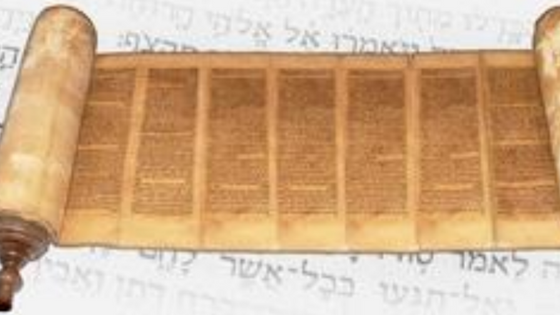

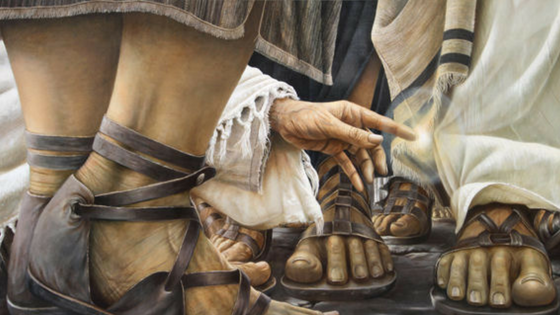
 The readings for the 13th Sunday in Ordinary time remind us that our life is to be lived in awareness that we are fashioned in the image and likeness of God. This understanding leads us to see how in our relationships with all there is, we make manifest God’s nature and presence fully alive, one and whole with all of creation.
The readings for the 13th Sunday in Ordinary time remind us that our life is to be lived in awareness that we are fashioned in the image and likeness of God. This understanding leads us to see how in our relationships with all there is, we make manifest God’s nature and presence fully alive, one and whole with all of creation.
 Every time I write a Sunday or a Torah commentary, the sweet memories of Bat Kol flood my mind; the wisdom of the classroom learning and the havrutah, the weekend trips to sacred sanctuaries, the sacredness of the dry desert experience, Shabbat Meals and praying in the synagogues, the Rabbis and the Professors who assisted us in the excavation of the Word. The late Brother Jack Driscoll in his very humble and humorous style of teaching, always encouraging us. Jack always reminded us, please try to read the whole Torah portion for the week. If you can’t, read at least a few chapters, if not, try and read one chapter and if you are really struggling, just read the first verse of the Parashat Hashavuah (Torah portion for the week), where the title of the Torah portion is taken from. You are great Bro. Jack Driscoll, and to all of you, who are called to a live a life of service at Bat Kol Institute.
Every time I write a Sunday or a Torah commentary, the sweet memories of Bat Kol flood my mind; the wisdom of the classroom learning and the havrutah, the weekend trips to sacred sanctuaries, the sacredness of the dry desert experience, Shabbat Meals and praying in the synagogues, the Rabbis and the Professors who assisted us in the excavation of the Word. The late Brother Jack Driscoll in his very humble and humorous style of teaching, always encouraging us. Jack always reminded us, please try to read the whole Torah portion for the week. If you can’t, read at least a few chapters, if not, try and read one chapter and if you are really struggling, just read the first verse of the Parashat Hashavuah (Torah portion for the week), where the title of the Torah portion is taken from. You are great Bro. Jack Driscoll, and to all of you, who are called to a live a life of service at Bat Kol Institute.